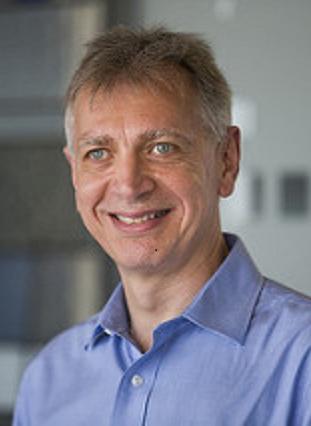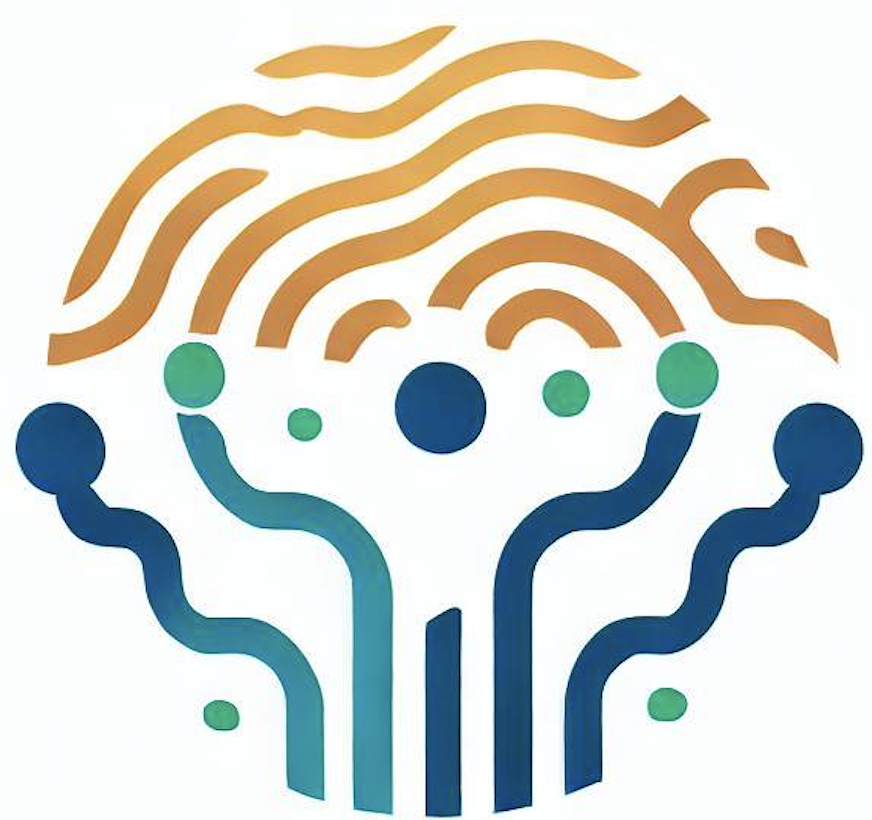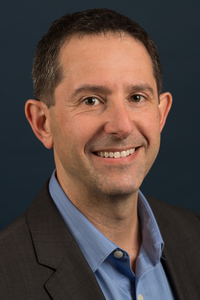Better and Less Expensive: Towards Trustworthy and Computationally Efficient AI for Health and Beyond
Vladimir Braverman, Johns Hopkins University
12:30 pm, Thursday, October 30th, Stibbs 203, Lavin-Bernick Center, Tulane University Uptown Campus
Abstract:
The wide deployment of (generative) AI in resource-constrained and mission-critical environments is hindered by multiple challenges. In this talk, we will focus on two such challenges: computational efficiency and trustworthiness, broadly understood. We will argue that multi-disciplinary teams of researchers are essential to tackle these challenges and will provide several examples of such collaborations, including:
- Mitigating “overthinking” in complex LLM reasoning tasks to reduce the length of chain-of-thought (CoT) reasoning paths and improve inference cost and latency,
- Designing uncertainty-based SLM routing that offloads high-stakes queries to stronger LLMs to enhance reliability while striking a balance between efficiency and efficacy, and allowing LLMs themselves to decide when longer reasoning is necessary and when shorter reasoning suffices
- Developing new methods for KV cache quantization to significantly reduce the inference costs and enable Llama, Falcon, and Mistral models to maintain almost the same quality while using 2.6x less peak memory.
- Introducing a rare disease question-answering dataset to evaluate the performance of LLMs in diagnosing rare diseases and benchmarking several open-source LLMs, revealing that diagnosing rare diseases remains a significant challenge for these models.
- Using coreset algorithms to compress and denoise medical images for selective experience replay-based lifelong reinforcement learning on MRI images to achieve 27x compression with excellent performance in localizing five anatomical landmarks, such as the left knee, spleen, and lung.
About the Speaker: Vladimir Braverman is the associate head of faculty and a professor in the Johns Hopkins University Department of Computer Science with a secondary appointment at the Department of Biomedical Engineering. His current research focuses on the algorithmic and practical aspects of large-scale machine learning and their applications to data science and health care. Braverman works on efficient and provable methods, tools, and algorithms for massive datasets. His methods find applications in large-scale machine learning, software-defined networks, medical imaging, and cosmological simulations. He has published over 100 articles on these topics, and the NSF, DARPA, the Office of Naval Research, and the National Institutes of Health have partially supported his research. He has received several awards, including an NSF Early CAREER Award, a Google Faculty Award, and a Cisco Faculty Award. He also received a Best Paper Award at the 2019 USENIX Conference on File and Storage Technologies, as well as a Silver Best Paper Award at the 2021 International Conference on Machine Learning (ICML) workshop on adversarial machine learning. Braverman serves on the editorial board for the Journal of Computer and System Sciences, has served as an area chair for ICML and the Conference on Neural Information Processing Systems, and has served on program committees for numerous other conferences, including the Institute of Electrical and Electronics Engineers International Conference on Computer Communications, the Annual ACM Symposium on Theory of Computing, the ACM Symposium on Discrete Algorithms, and ACM SIGMETRICS. He is additionally a member of the Center for Language and Speech Processing (CLSP), the Mathematical Institute for Data Science (MINDS), and the Data Science and AI Institute (DSAI). Braverman holds an adjunct appointment at the Department of Computer Science at Rice University, a without-salary position in the Department of Diagnostic and Interventional Imaging at the McGovern Medical School, University of Texas Health Science Center at Houston, and is a visiting researcher at Google Research. In the distant past, he led a research group at HyperRoll, a startup that provided fast solutions for financial analytics and was acquired by Oracle in 2009.
Deep Learning for 3D Scene Modeling & AI-Enhanced Healthcare
Andy Duan, Clemson University
This talk will be held on Thursday, August 21st at 12:30 pm in Stanley Thomas 316.
Abstract:
3D scene modeling is fundamental in many applications including Virtual Reality, Augmented Reality, Autonomous Driving, Robotics, Telehealth, etc. In this talk, I will first discuss some of our recent works in 3D scene modeling including: 1) PanoDepth: a deep learning based omnidirectional depth estimation framework via a novel integration of multi-scale view synthesis and multi-view stereo matching; and 2) OmniFusion: a 360 monocular depth estimation framework via geometry-aware fusion. I will then describe some of our ongoing projects in AI-enhanced healthcare including 3D face recognition and 3D brain imaging for autism subgroup phenotyping and genotyping, digital pathology, and 3D multi-organ segmentation to support Stereotactic MRI guided online Adaptive Radiotherapy (SMART), etc. In the second part of the talk, I will discuss the vision plan for growing AI research.
About the Speaker: Andy Duan is a Program Director in the Directorate for Computer and Information Science and Engineering (CISE) at the National Science Foundation (NSF) and a Professor in the School of Computing at Clemson University. Andy received his B.S. in Mathematics from Peking University in 1991, his M.S. in Mathematics in Utah State University in 1996, and his M.S. and Ph.D. in Computer Science from the State University of New York at Stony Brook in 1998 and 2003, respectively. His research interests include Computer Vision, Machine Learning, Computer Graphics, Virtual Reality and Biomedical Imaging, etc. He was the recipients of the Department of Defense Autism Concept Award, the Brain and Behavior Research Foundation Young Investigator Award, the Best Paper Honorable Mentioning Award at IEEE Visualization Conference, and the Editor’s Choice Award of the Journal of Medical Physics, etc. He was the Workshop Chair for IEEE Workshop on Bioinformatics in Biomedical Imaging in 2013 and the Conference Chairs of the IEEE International Conference on Shape Modeling (SMI) in 2018 and 2019.
Pick, Click, Flick! Some Stories about Interaction Techniques
Brad Myers, Carnegie Mellon University
This talk will be held on Monday, March 21st, at 3:00pm in HTMLB11. Co-Sponsored in part by the Jurist Center for Artificial Intelligence and the Center for Community-Engaged AI.
Abstract:
How do we interact with technology every day? Whether using a smartphone, gaming console, or virtual reality headset, the way we engage with digital devices is shaped by Interaction Techniques (IxTs)—the fundamental building blocks of user interfaces. From touchscreen gestures like pinch-to-zoom to voice assistants like Siri and Alexa, these techniques define how we control and experience technology.
In this engaging talk, Brad A. Myers, an esteemed researcher in Human-Computer Interaction, will explore the history, challenges, and future of interaction techniques. He will discuss how these techniques evolve, why they are difficult to design, and how they shape user experiences across industries. Drawing from his new book, Pick, Click, Flick! The Story of Interaction Techniques, Myers will offer insights from decades of research and innovation in the field.
About the Speaker: Brad A. Myers is the Charles M. Geschke Director of the Human-Computer Interaction Institute at Carnegie Mellon University and a leading expert in user interface design. A recipient of the ACM SIGCHI Lifetime Achievement Award in Research, he has authored over 550 publications and contributed to groundbreaking advancements in HCI. Myers, a New Orleans native, has consulted for over 90 companies and continues to shape the future of digital interaction through research and teaching.
Don't miss this opportunity to learn from one of the pioneers of human-computer interaction!
More about the book: www.ixtbook.com
"Traversing the AI Innovation to Translation Journey: Advancing Common Good"
Nitesh Chawla, University of Notre Dame
This talk will be held on Monday, November 18th, at 11:00 am in Stibbs 203, Lavin-Bernick Center. Sponsored in part by the Jurist Center for Artificial Intelligence and the Center for Community-Engaged AI.
Abstract: In this talk, I will present our work on fundamental advances in AI, inspired by interdisciplinary problem statements and societal challenges. I will highlight our innovation journey that encapsulates both the opportunities and challenges inherent in harnessing the full potential of AI in addressing a wicked problem, in particular highlighting our work in healthcare and scientific discovery.
About the Speaker: Nitesh Chawla is the Frank M. Freimann Professor of Computer Science and Engineering and the Founding Director of the Lucy Family Institute for Data and Society at the University of Notre Dame. His research is focused on artificial intelligence and data science and is also motivated by the question of how technology can advance the common good through convergence research. He is a Fellow of ACM, AAAI, AAAS, and IEEE. He is the recipient of multiple awards, including the National Academy of Engineers New Faculty Fellowship, IEEE CIS Outstanding Early Career Award, Rodney F. Ganey Community Impact Award, IBM Watson Faculty Award, and the 1st Source Bank Technology Commercialization Award. He is co-founder of Aunalytics, a data science software and cloud computing company.
Flyer
Enhancing healthcare with AI-in-the-loop
Sriraam Natarajan, University of Texas, Dallas
12:30 pm, Thursday, November 7th, Stibbs 203, Lavin-Bernick Center, Tulane University Uptown Campus
Abstract: Historically, Artificial Intelligence has taken a symbolic route for representing and reasoning about objects at a higher-level or a statistical route for learning complex models from large data. To achieve true AI in complex domains such as healthcare, it is necessary to make these different paths meet and enable seamless human interaction. First, I will introduce learning from rich, structured, complex and noisy data. One of the key attractive properties of the learned models is that they use a rich representation for modeling the domain that potentially allows for seam-less human interaction. I will present the recent progress that allows for more reasonable human interaction where the human input is taken as “advice” and the learning algorithm combines this advice with data. I will present these algorithms in the context of several healthcare problems -- learning from electronic health records, clinical studies, and surveys -- and demonstrate the value of involving experts during learning.
About the Speaker: Sriraam Natarajan is a Professor and the Director for Center for ML at the Department of Computer Science at University of Texas Dallas, a hessian.AI fellow at TU Darmstadt and a RBDSCAII Distinguished Faculty Fellow at IIT Madras. His research interests lie in the field of Artificial Intelligence, with emphasis on Machine Learning, Statistical Relational Learning and AI, Reinforcement Learning, Graphical Models and Biomedical Applications. He is a AAAI senior member and has received the Young Investigator award from US Army Research Office, President's award for excellence in graduate teaching, several industry awards, ECSS Graduate teaching award from UTD and the IU trustees Teaching Award from Indiana University. He was the program chair of AAAI 2024, the general chair of CoDS-COMAD 2024, program co-chair of SDM 2020 and ACM CoDS-COMAD 2020 conferences. He was the specialty chief editor of Frontiers in ML and AI journal, and is an associate editor of JAIR, DAMI and Big Data journals.
The goal of this networking event is to provide a forum to raise awareness about the AI research happening in the Gulf Coast region, including the unique and pressing challenges where AI/ML/DS research can have impact including coastal, climate, logistics, and materials. Part of the Neural Information Processing Systems conference held in New Orleans in 2023. Panelists include:
- Alessandra Bazzano, PhD, MPH, Associate Professor, Tulane University’s Department of Social, Behavioral, and Population Sciences, and Director of Tulane’s Center of Excellence in Maternal Child Health (CEMCH)
- Blake Bertuccelli-Booth, CEO of Equalify, a web accessibility platform, and Co-Founder of the New Orleans AI (NOAI) symposium
- Walter Isaacson, Leonard Lauder Professor of American History and Values at Tulane, winner of the National Humanities Medal in 2023 and past CEO of the Aspen Institute, former chairman of CNN, and the editor of TIME magazine. Author of bestselling books including Elon Musk; The Code Breaker; Leonardo da Vinci; The Innovators; Steve Jobs; Einstein: His Life and Universe; Benjamin Franklin: An American Life; and Kissinger: A Biography.
- Robert Lalka, Albert R. Lepage Professor in Business at Tulane University’s A.B. Freeman School of Business and Executive Director of the Albert Lepage Center for Entrepreneurship and Innovation
Website
"Machine Learning for Engineering"
Pascal Van Hentenryck, Georgia Tech. Distinguished Lecture Series. 4:00pm, Stanley Thomas 302  Abstract: The fusion of machine learning and optimization has the potential to achieve breakthroughs in science and engineering that the two technologies cannot accomplish independently. This talk reviews a number of research avenues in this direction, including the concept of optimization proxies and end-to-end learning. Principled combinations of machine learning and optimization are illustrated on case studies in energy systems, mobility, and supply chains. Preliminary results show how this fusion makes it possible to perform real-time risk assessment in energy systems, find near-optimal solutions quickly in supply chains, and implement model-predictive control for large-scale mobility systems.
Abstract: The fusion of machine learning and optimization has the potential to achieve breakthroughs in science and engineering that the two technologies cannot accomplish independently. This talk reviews a number of research avenues in this direction, including the concept of optimization proxies and end-to-end learning. Principled combinations of machine learning and optimization are illustrated on case studies in energy systems, mobility, and supply chains. Preliminary results show how this fusion makes it possible to perform real-time risk assessment in energy systems, find near-optimal solutions quickly in supply chains, and implement model-predictive control for large-scale mobility systems.
About the Speaker: Pascal Van Hentenryck is an A. Russell Chandler III Chair and Professor in the H. Milton Stewart School of Industrial and Systems Engineering at Georgia Tech. He is also the director of the NSF Artificial Intelligence Institute for Advances in Optimization. Prior to this appointment, he was a professor of Computer Science at Brown University for about 20 years, he led the optimization research group (about 70 people) at National ICT Australia (NICTA) (until its merger with CSIRO) and was the Seth Bonder Collegiate Professor of Engineering at the University of Michigan. Van Hentenryck is also an Honorary Professor at the Australian National University. Van Hentenryck is a Fellow of AAAI (the Association for the Advancement of Artificial Intelligence) and INFORMS (the Institute for Operations Research and Management Science). Van Hentenryck’s research focuses on artificial intelligence and operations research for engineering applications: He explores methodologies that includes large-scale optimization and machine learning and applies them in challenging applications in energy, mobility, supply chains and logistics, privacy, and resilience. In particular, he leads the NSF AI Institute for Advances in Optimization, the Socially-Aware Mobility (SAM) project with a major focus on on-demand multi-modal transit systems, and the RAMC Project whose goal is to study risk-aware market clearing algorithms to integrate large shares of renewable energy. Together with MARTA, he piloted MARTA Reach, an on-demand service to explore the viability of on-demand multi-modal transit systems in Atlanta. Earlier in his career, Van Hentenryck designed and implemented several widely used optimization systems, including the constraint programming language CHIP (the foundation of modern constraint-programming systems) and the modeling language OPL (now an IBM product).
A one-day workshop of academics and community partners to discuss emerging issues in artificial intelligence and the potential benefits and harms it may have on our society and local communities. A forum to brainstorm ideas, articulate opportunities, and identify risks on the horizon as artificial intelligence’s impact grows.
News coverage | Flyer 
Outracing Champion Gran Turismo Drivers with Deep Reinforcement Learning
Peter Stone, University of Texas at Austin, Distinguished Lecture Series. 4:00pm, Stanley Thomas 302  Abstract: Many potential applications of artificial intelligence involve making real-time decisions in physical systems while interacting with humans. Automobile racing represents an extreme example of these conditions; drivers must execute complex tactical manoeuvres to pass or block opponents while operating their vehicles at their traction limits. Racing simulations, such as the PlayStation game Gran Turismo, faithfully reproduce the non-linear control challenges of real race cars while also encapsulating the complex multi-agent interactions. Here we describe how we trained agents for Gran Turismo that can compete with the world's best e-sports drivers. We combine state-of-the-art, model-free, deep reinforcement learning algorithms with mixed-scenario training to learn an integrated control policy that combines exceptional speed with impressive tactics. In addition, we construct a reward function that enables the agent to be competitive while adhering to racing's important, but under-specified, sportsmanship rules. We demonstrate the capabilities of our agent, Gran Turismo Sophy, by winning a head-to-head competition against four of the world's best Gran Turismo drivers. By describing how we trained championship-level racers, we demonstrate the possibilities and challenges of using these techniques to control complex dynamical systems in domains where agents must respect imprecisely defined human norms.
Abstract: Many potential applications of artificial intelligence involve making real-time decisions in physical systems while interacting with humans. Automobile racing represents an extreme example of these conditions; drivers must execute complex tactical manoeuvres to pass or block opponents while operating their vehicles at their traction limits. Racing simulations, such as the PlayStation game Gran Turismo, faithfully reproduce the non-linear control challenges of real race cars while also encapsulating the complex multi-agent interactions. Here we describe how we trained agents for Gran Turismo that can compete with the world's best e-sports drivers. We combine state-of-the-art, model-free, deep reinforcement learning algorithms with mixed-scenario training to learn an integrated control policy that combines exceptional speed with impressive tactics. In addition, we construct a reward function that enables the agent to be competitive while adhering to racing's important, but under-specified, sportsmanship rules. We demonstrate the capabilities of our agent, Gran Turismo Sophy, by winning a head-to-head competition against four of the world's best Gran Turismo drivers. By describing how we trained championship-level racers, we demonstrate the possibilities and challenges of using these techniques to control complex dynamical systems in domains where agents must respect imprecisely defined human norms.
About the Speaker: Dr. Peter Stone holds the Truchard Foundation Chair in Computer Science at the University of Texas at Austin. He is Associate Chair of the Computer Science Department, as well as Director of Texas Robotics. In 2013 he was awarded the University of Texas System Regents' Outstanding Teaching Award and in 2014 he was inducted into the UT Austin Academy of Distinguished Teachers, earning him the title of University Distinguished Teaching Professor. Professor Stone's research interests in Artificial Intelligence include machine learning (especially reinforcement learning), multiagent systems, and robotics. Professor Stone received his Ph.D in Computer Science in 1998 from Carnegie Mellon University. From 1999 to 2002 he was a Senior Technical Staff Member in the Artificial Intelligence Principles Research Department at AT&T Labs - Research. He is an Alfred P. Sloan Research Fellow, Guggenheim Fellow, AAAI Fellow, IEEE Fellow, AAAS Fellow, ACM Fellow, Fulbright Scholar, and 2004 ONR Young Investigator. In 2007 he received the prestigious IJCAI Computers and Thought Award, given biannually to the top AI researcher under the age of 35, and in 2016 he was awarded the ACM/SIGAI Autonomous Agents Research Award. Professor Stone co-founded Cogitai, Inc., a startup company focused on continual learning, in 2015, and currently serves as Executive Director of Sony AI America.
The goal of this networking event is to provide a forum to raise awareness about the AI research happening in the Gulf Coast region, including the unique and pressing challenges where AI/ML/DS research can have impact including coastal, climate, logistics, and materials. Part of the Neural Information Processing Systems conference held in New Orleans in 2022
Website
 A one-day workshop focused on the intersection of data, community, and design. For more information, see the DxCxD website
A one-day workshop focused on the intersection of data, community, and design. For more information, see the DxCxD website
